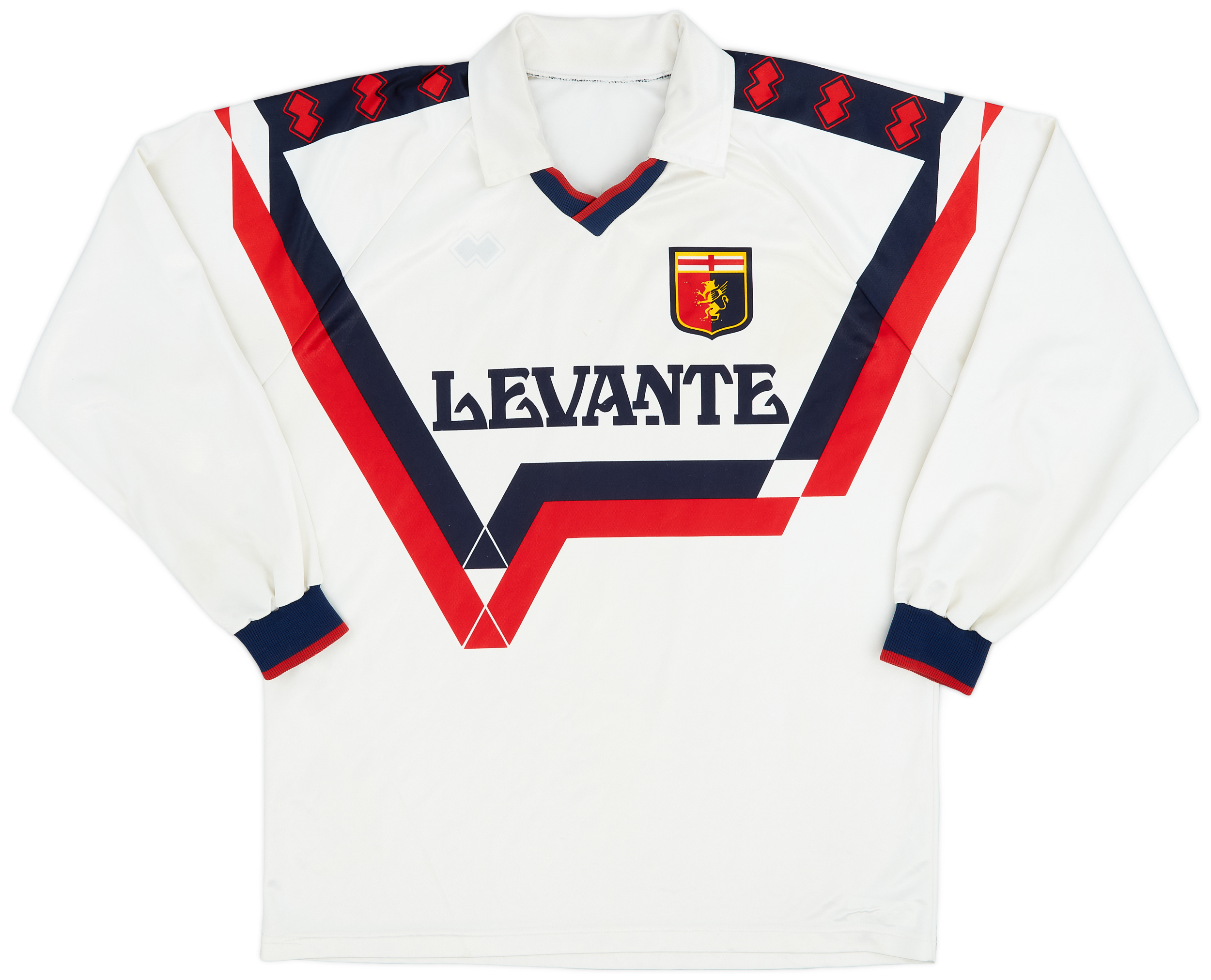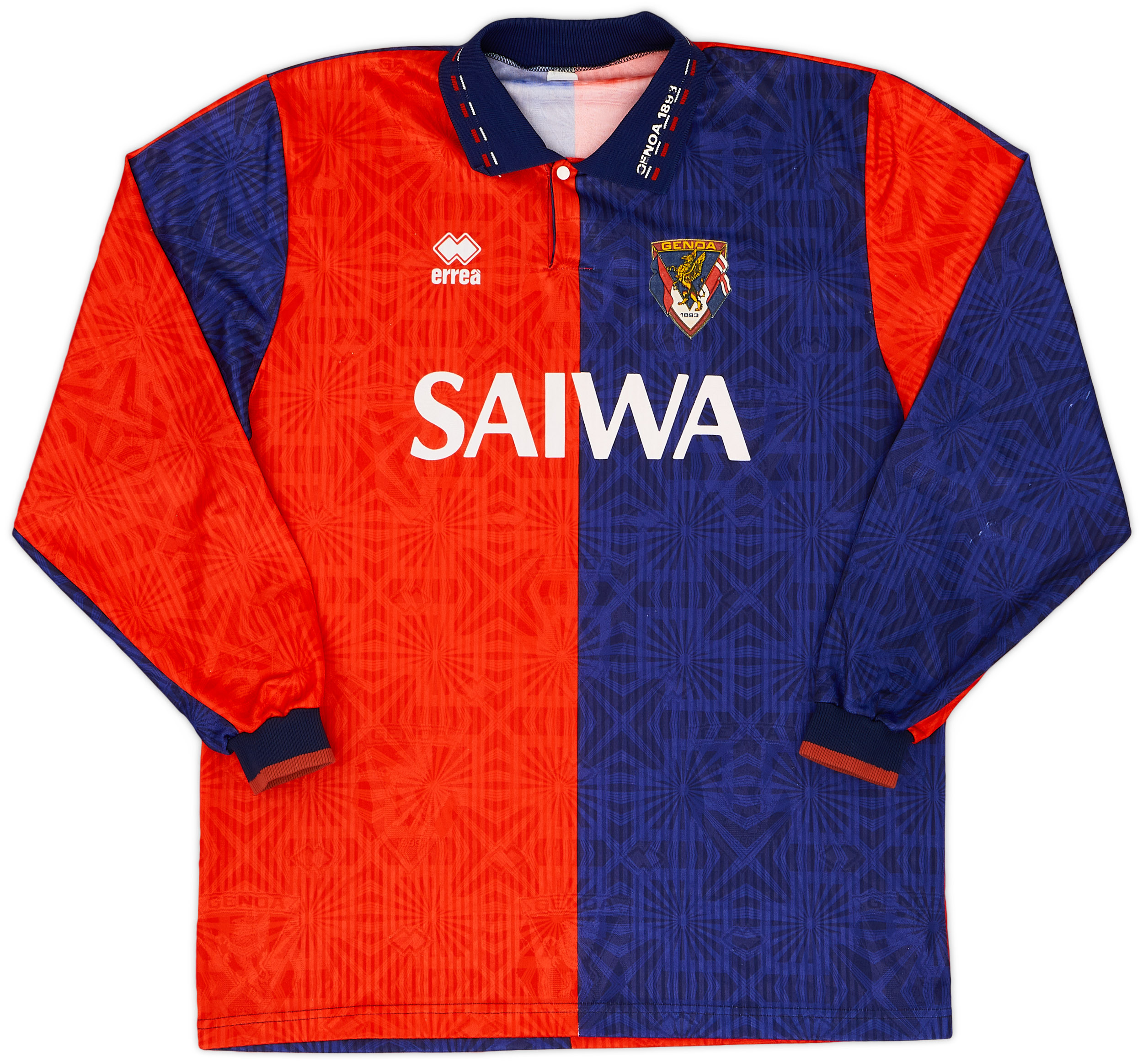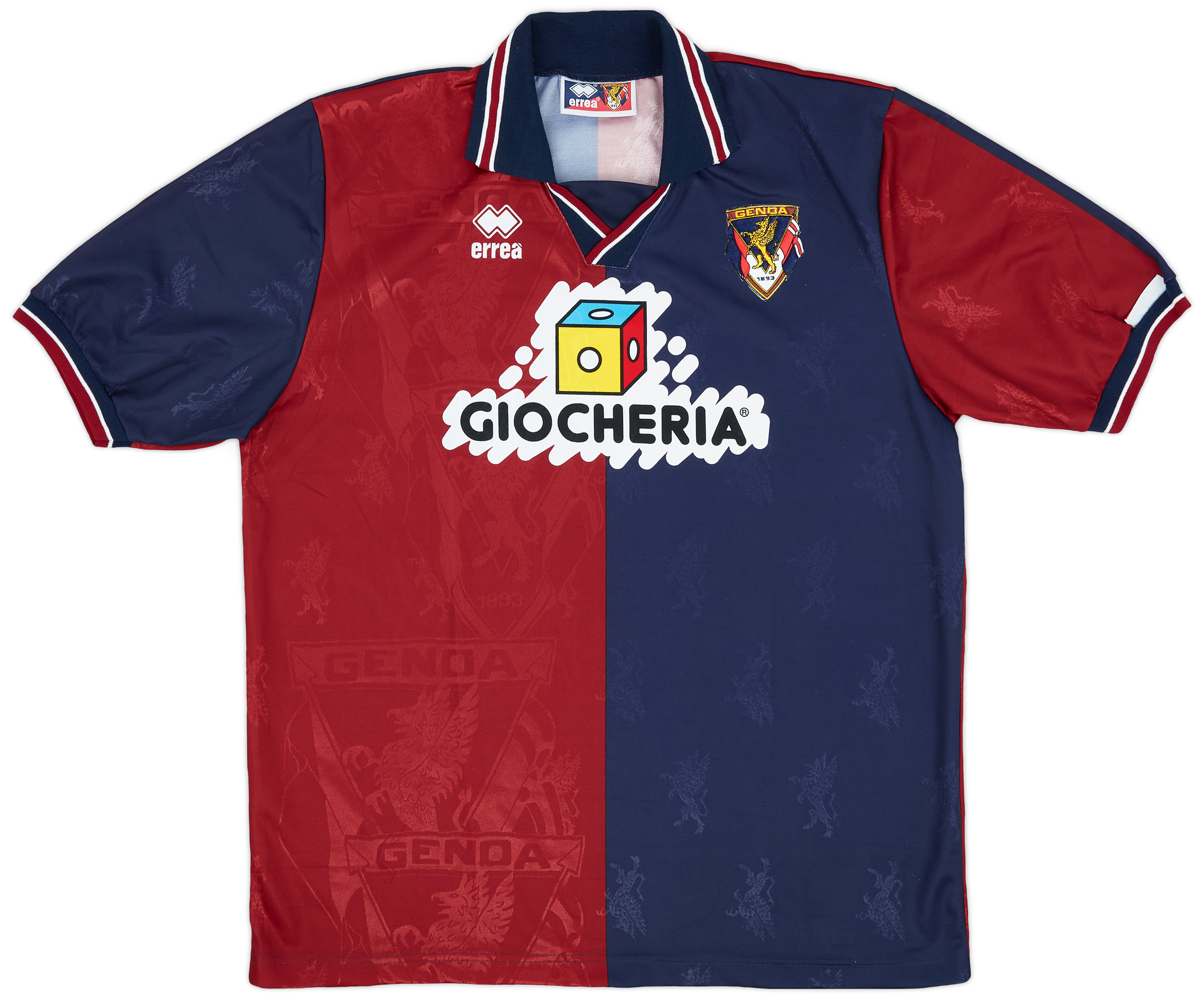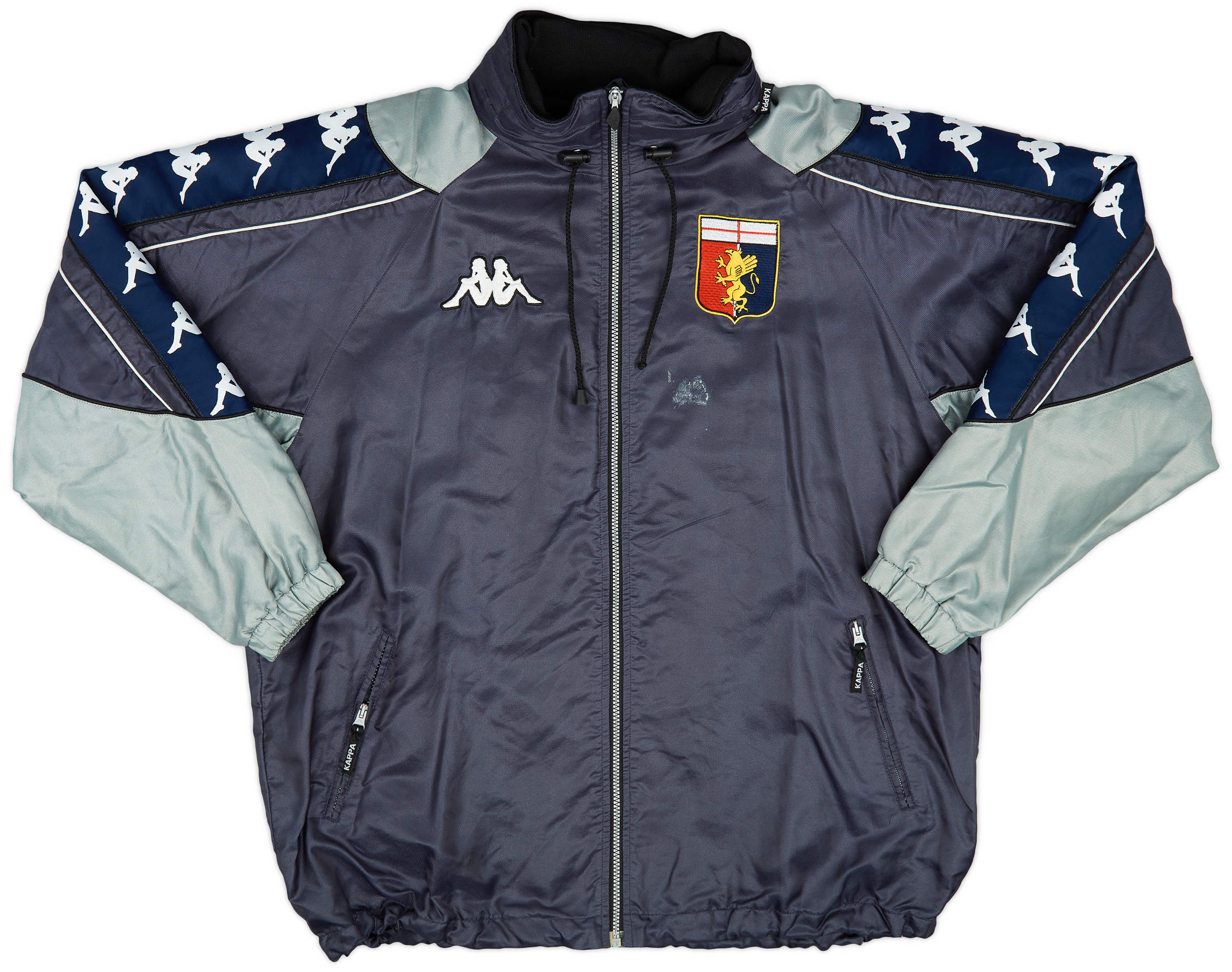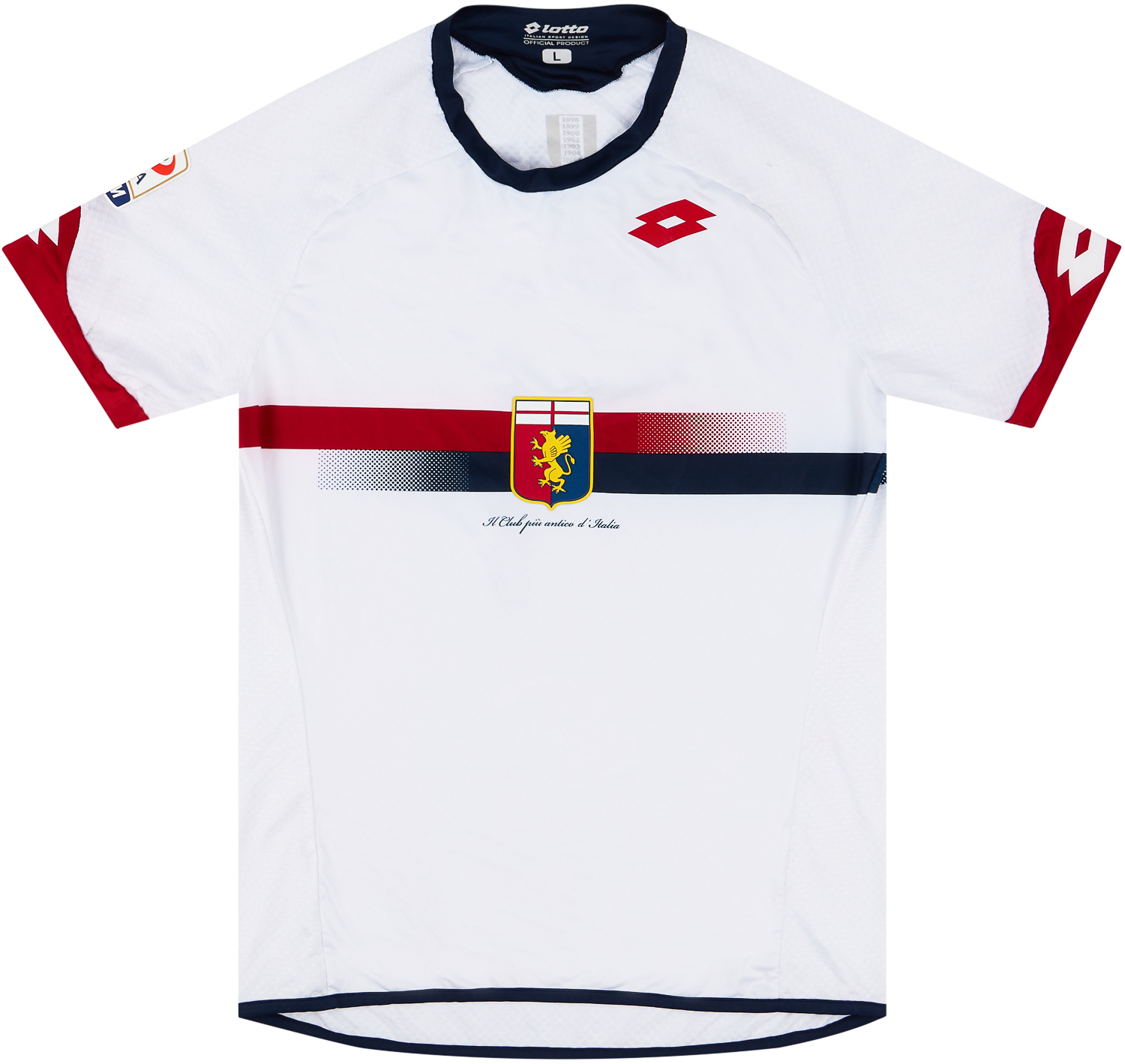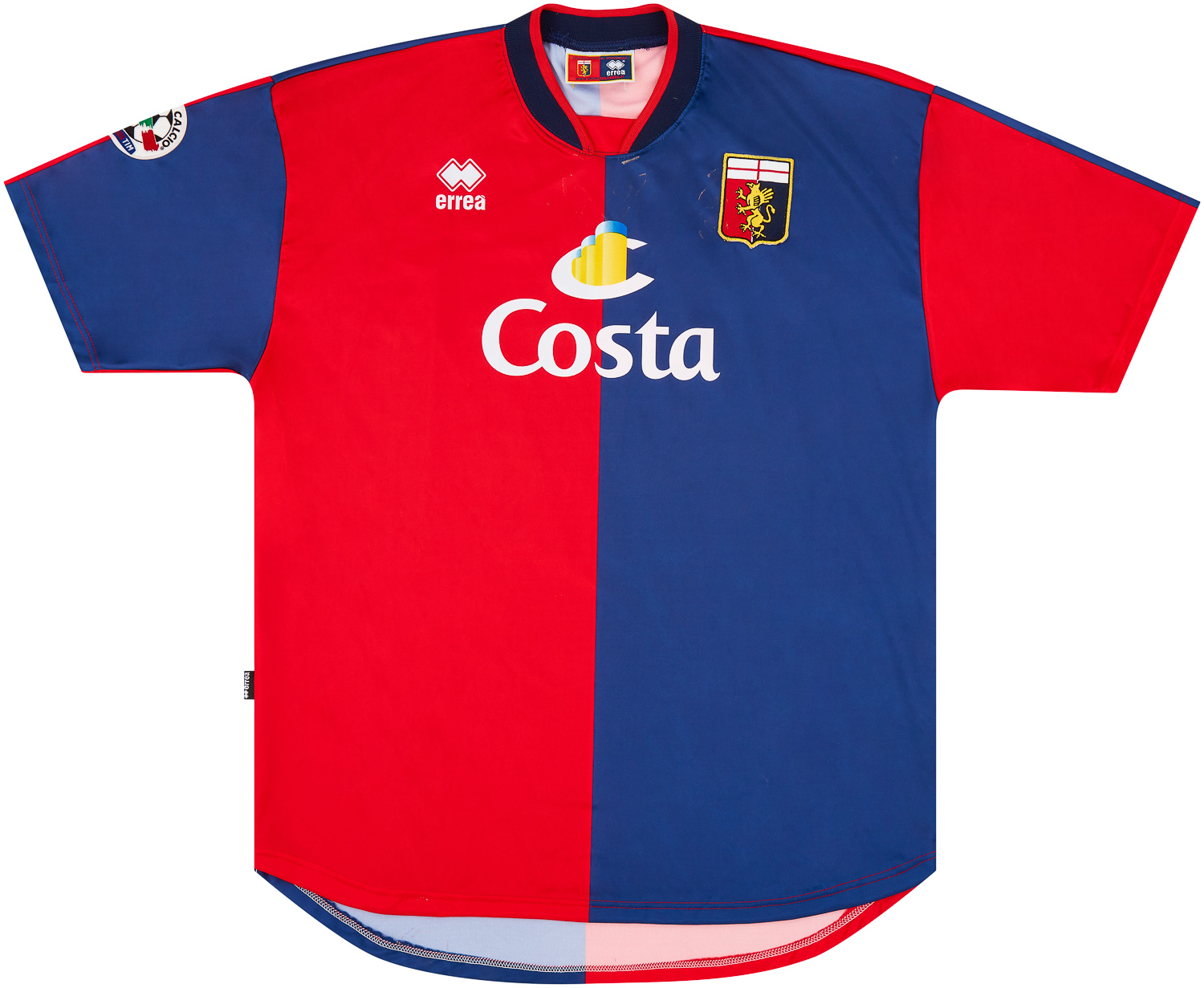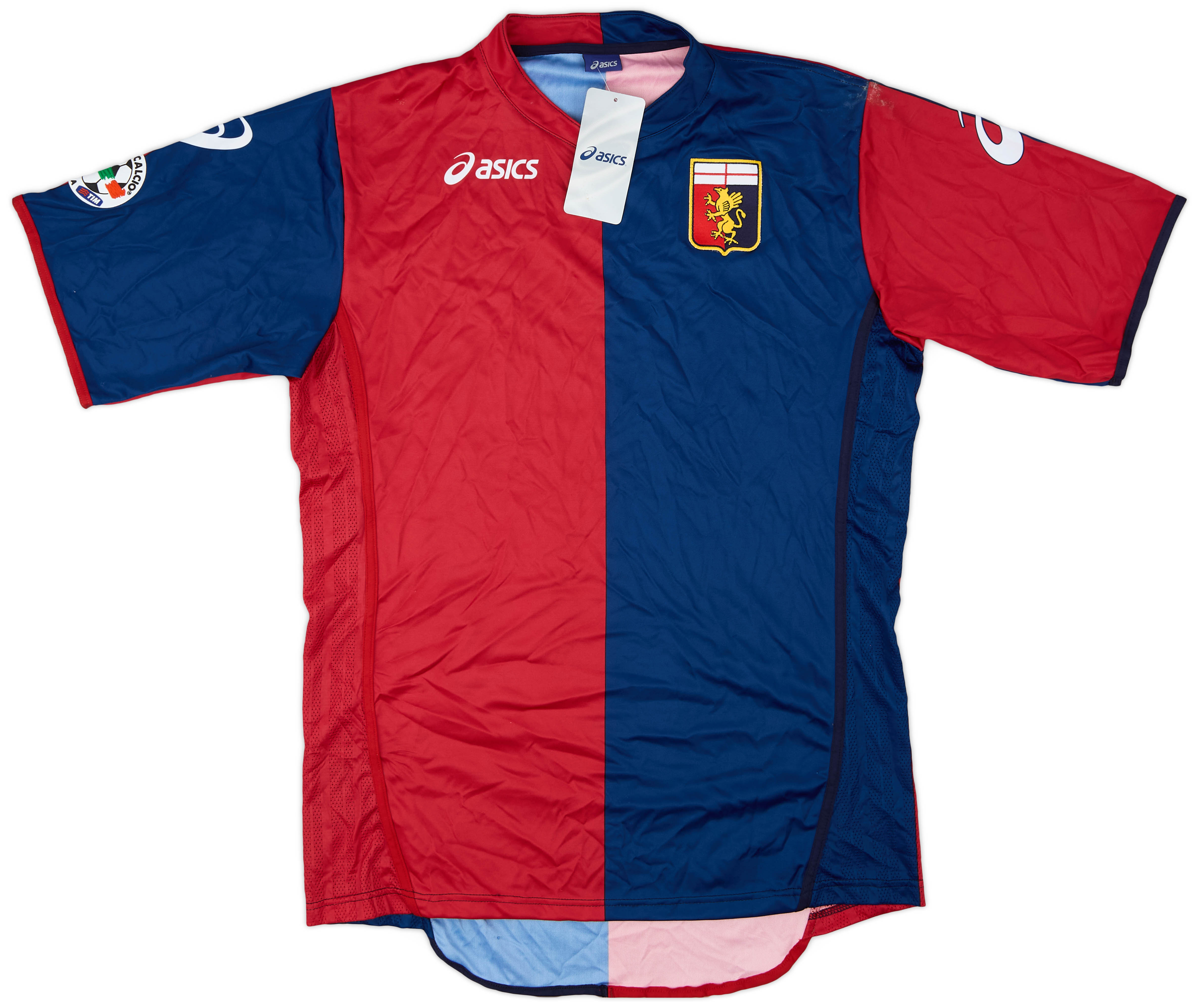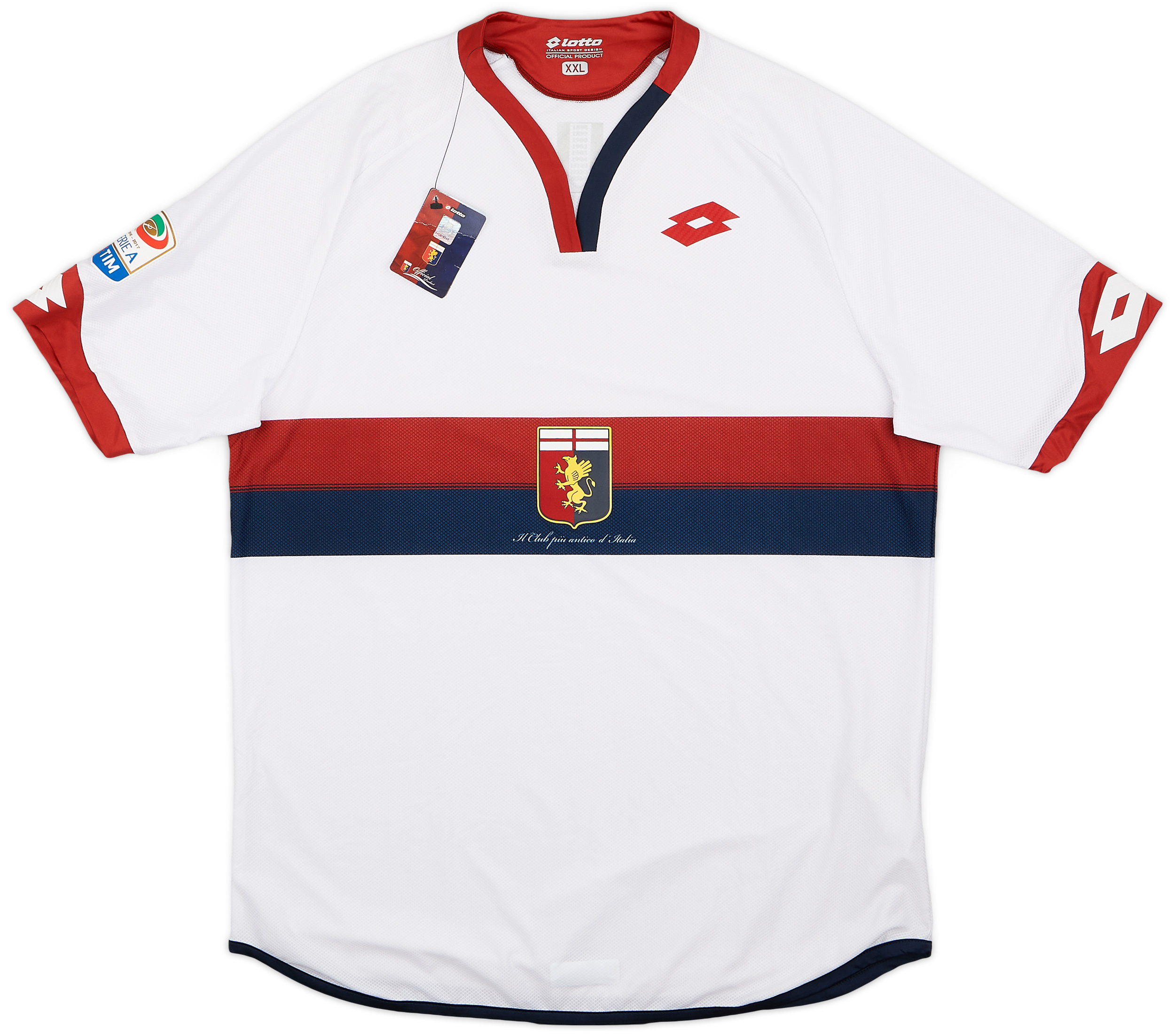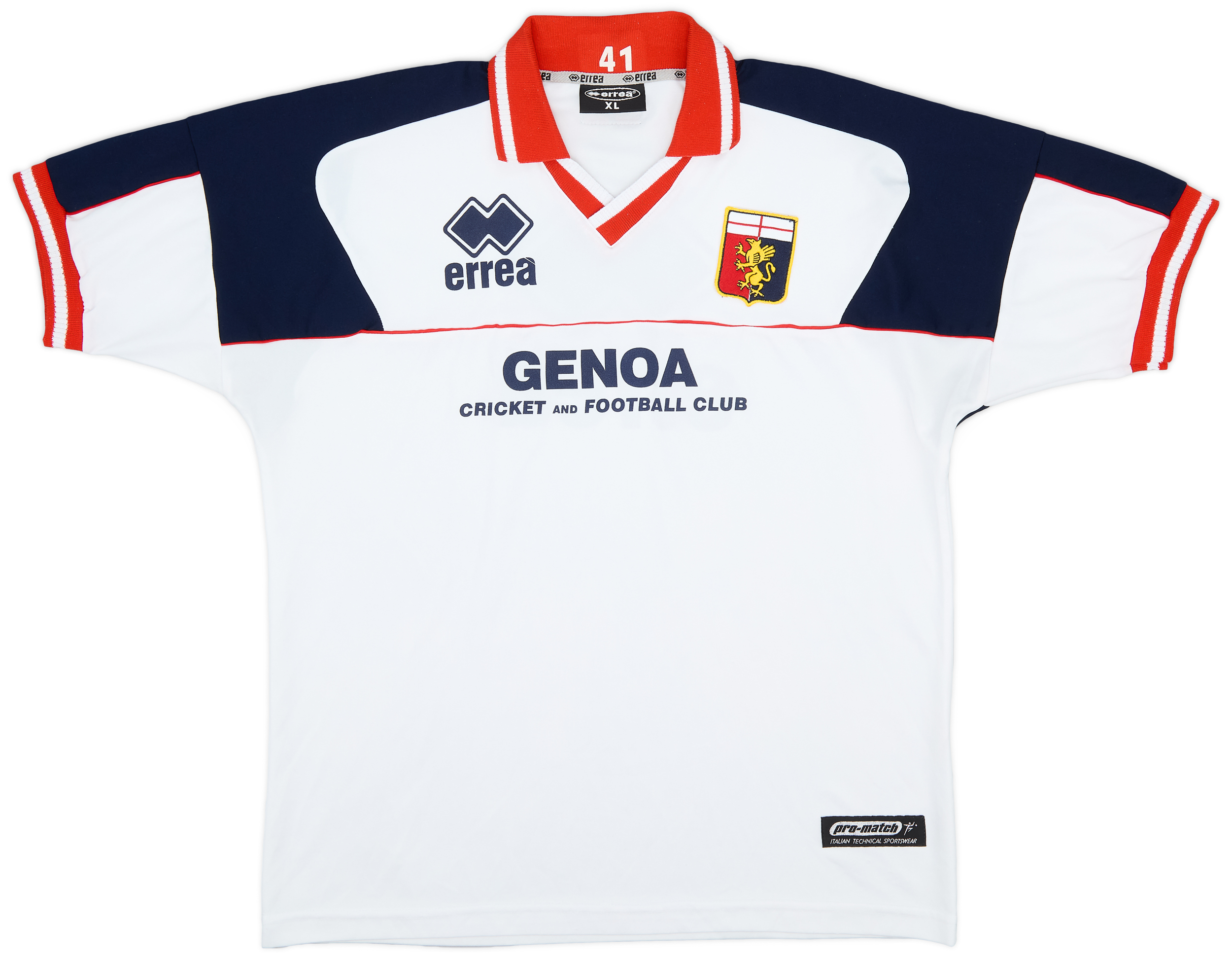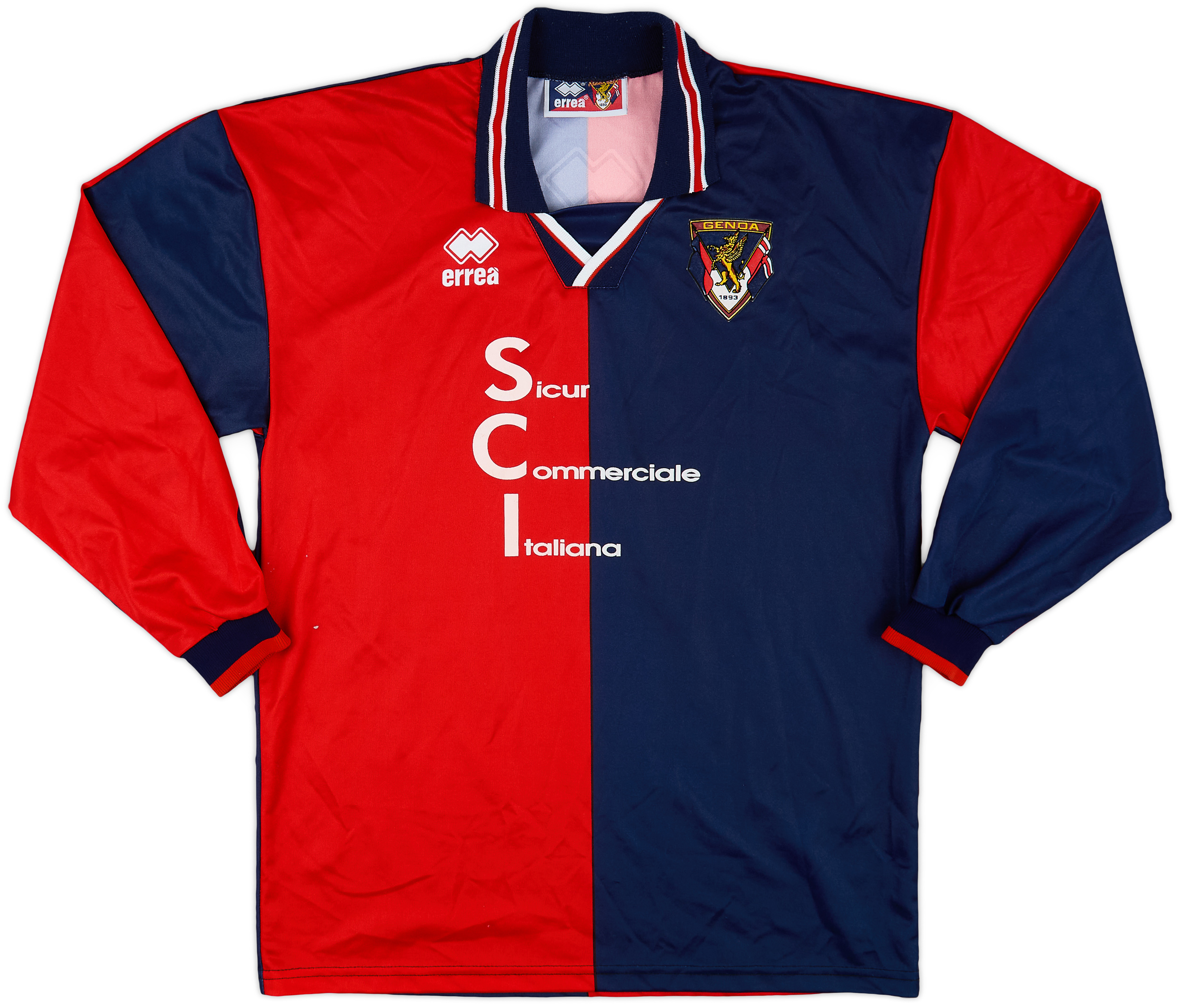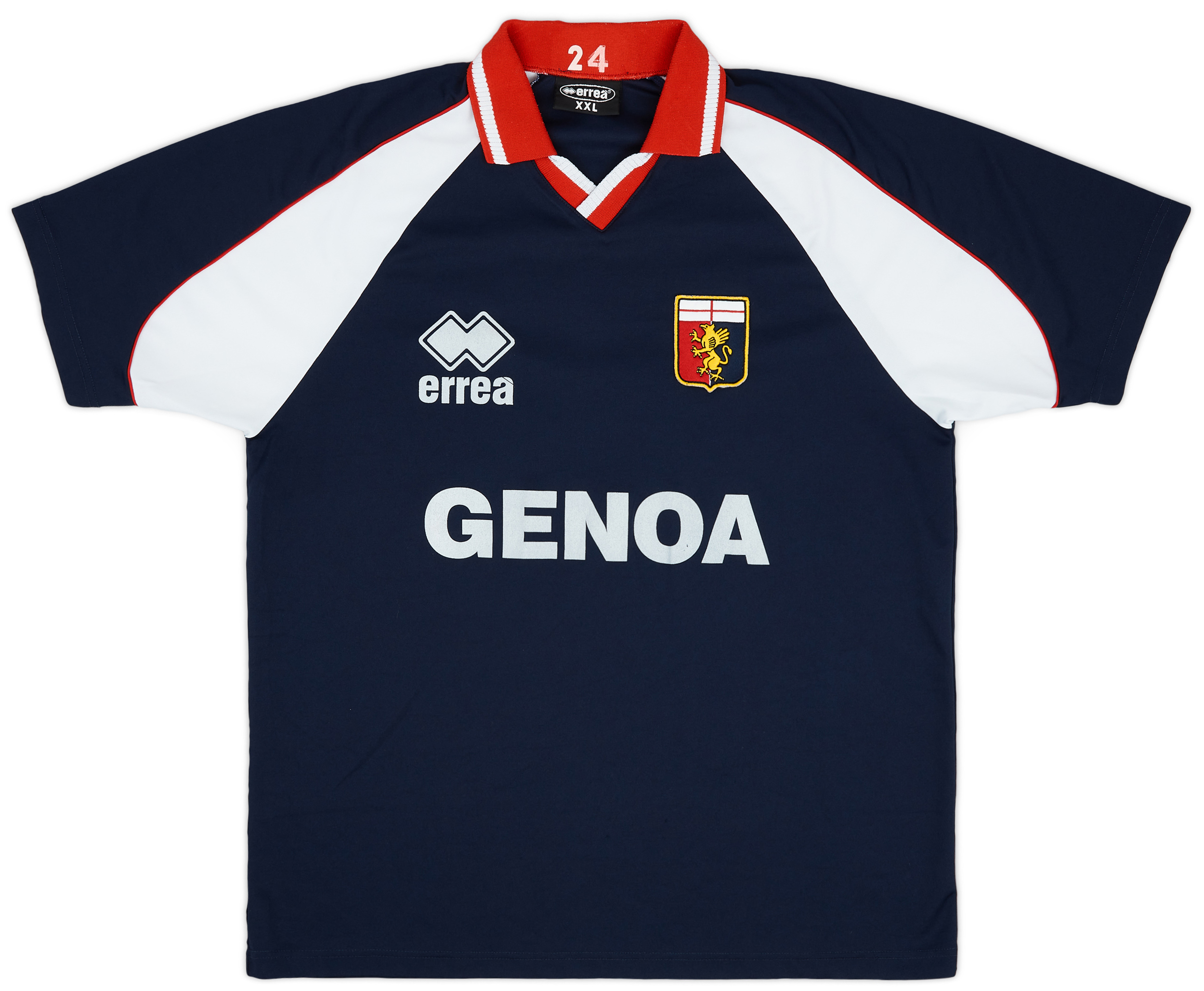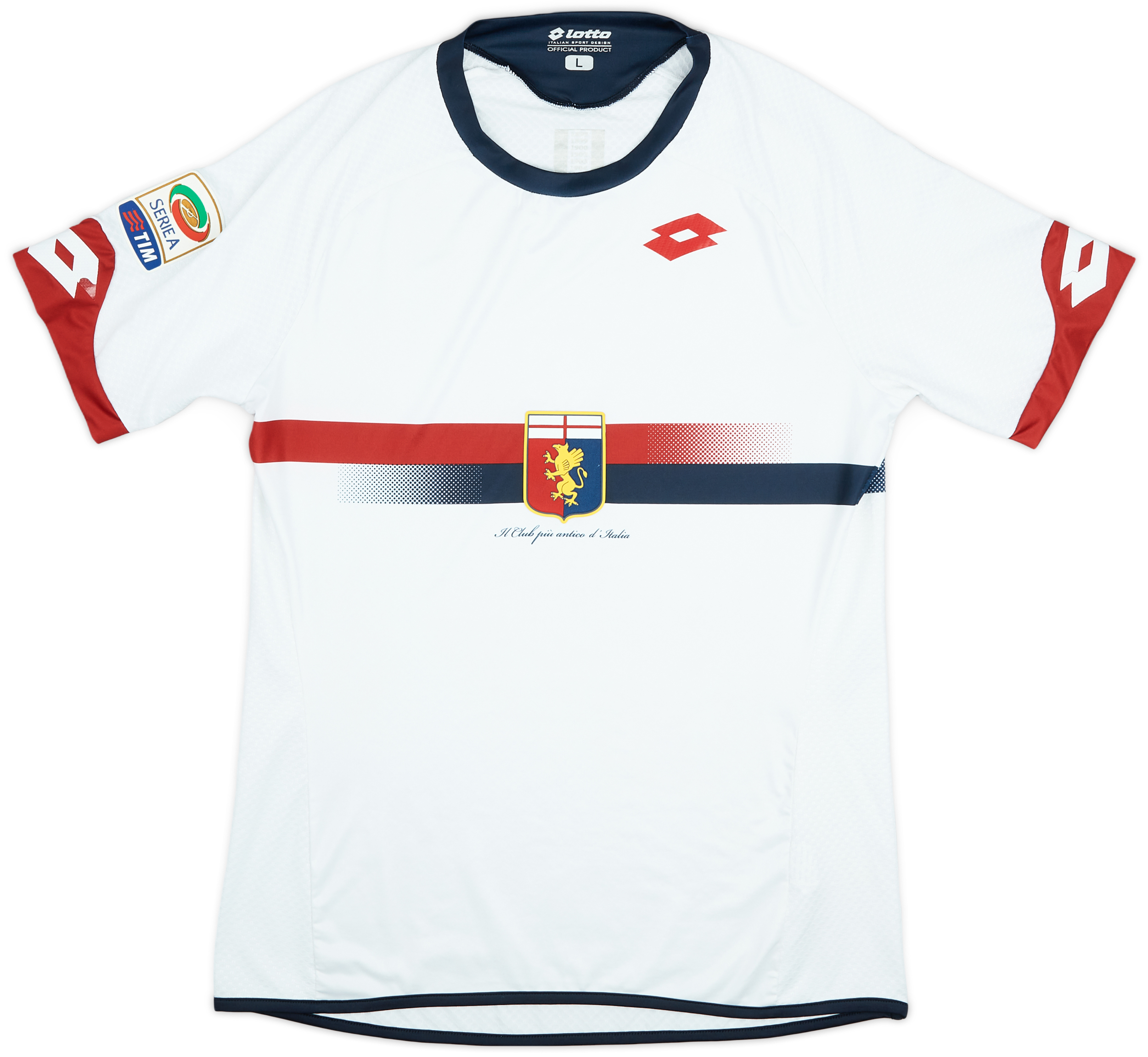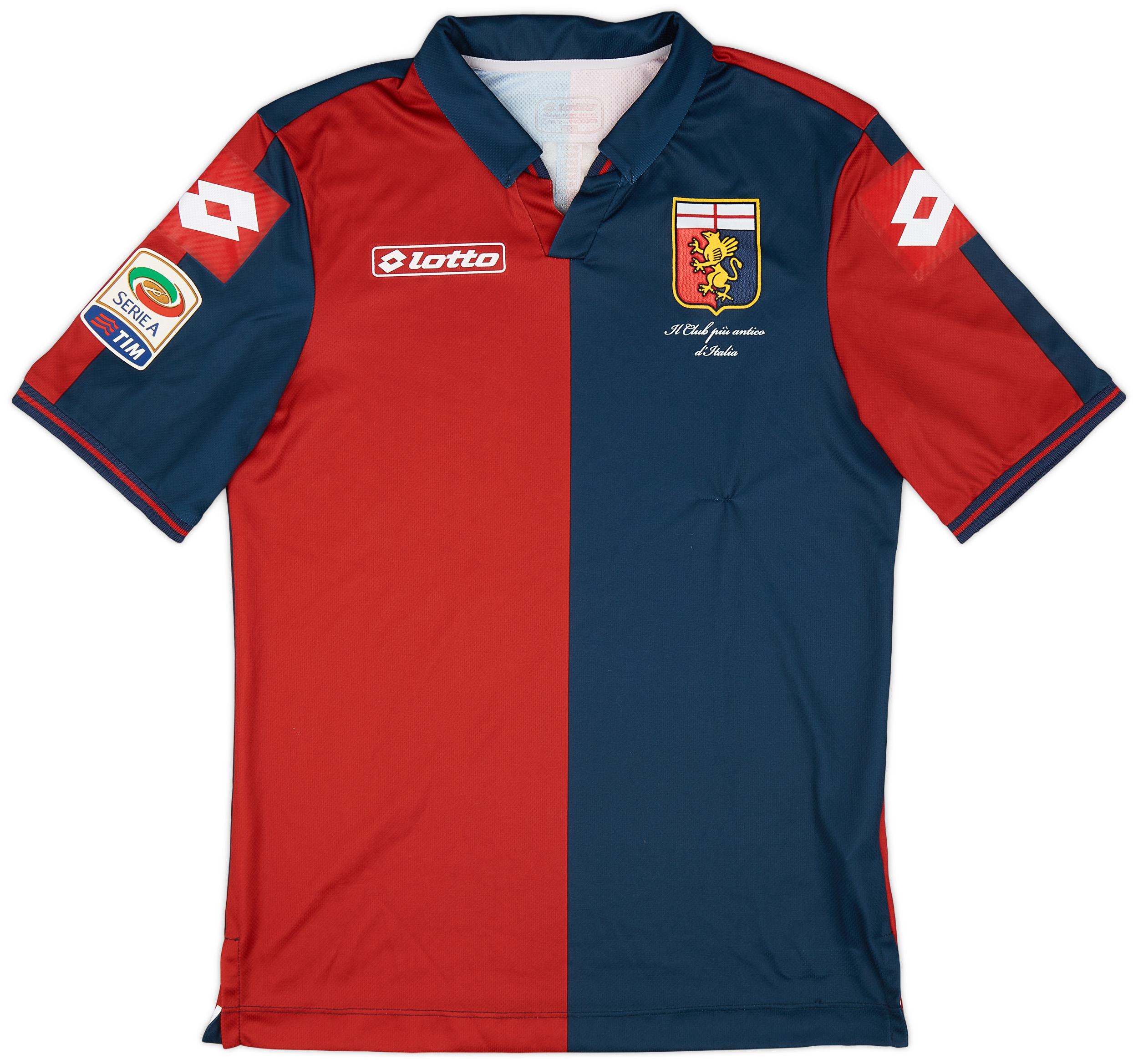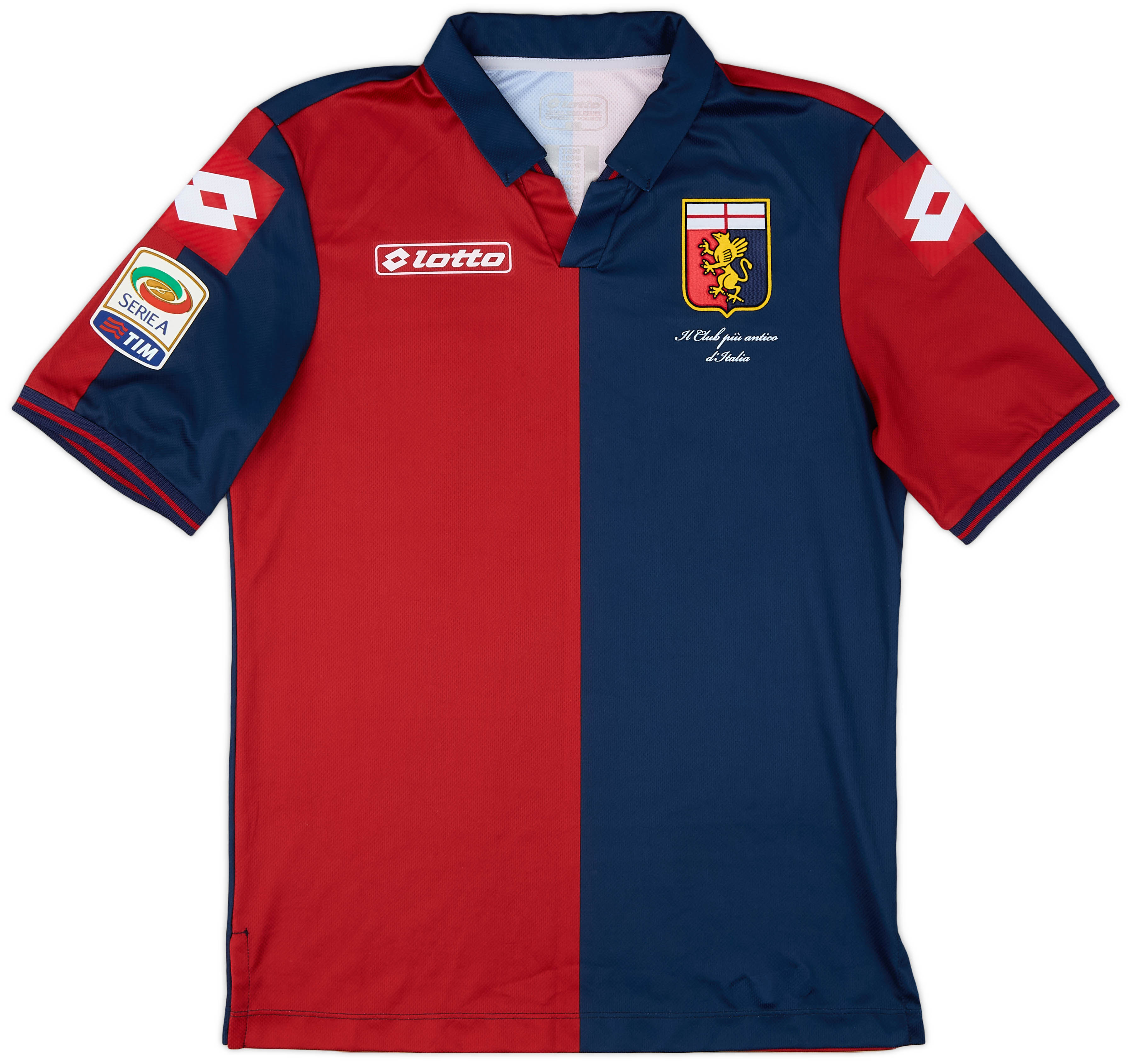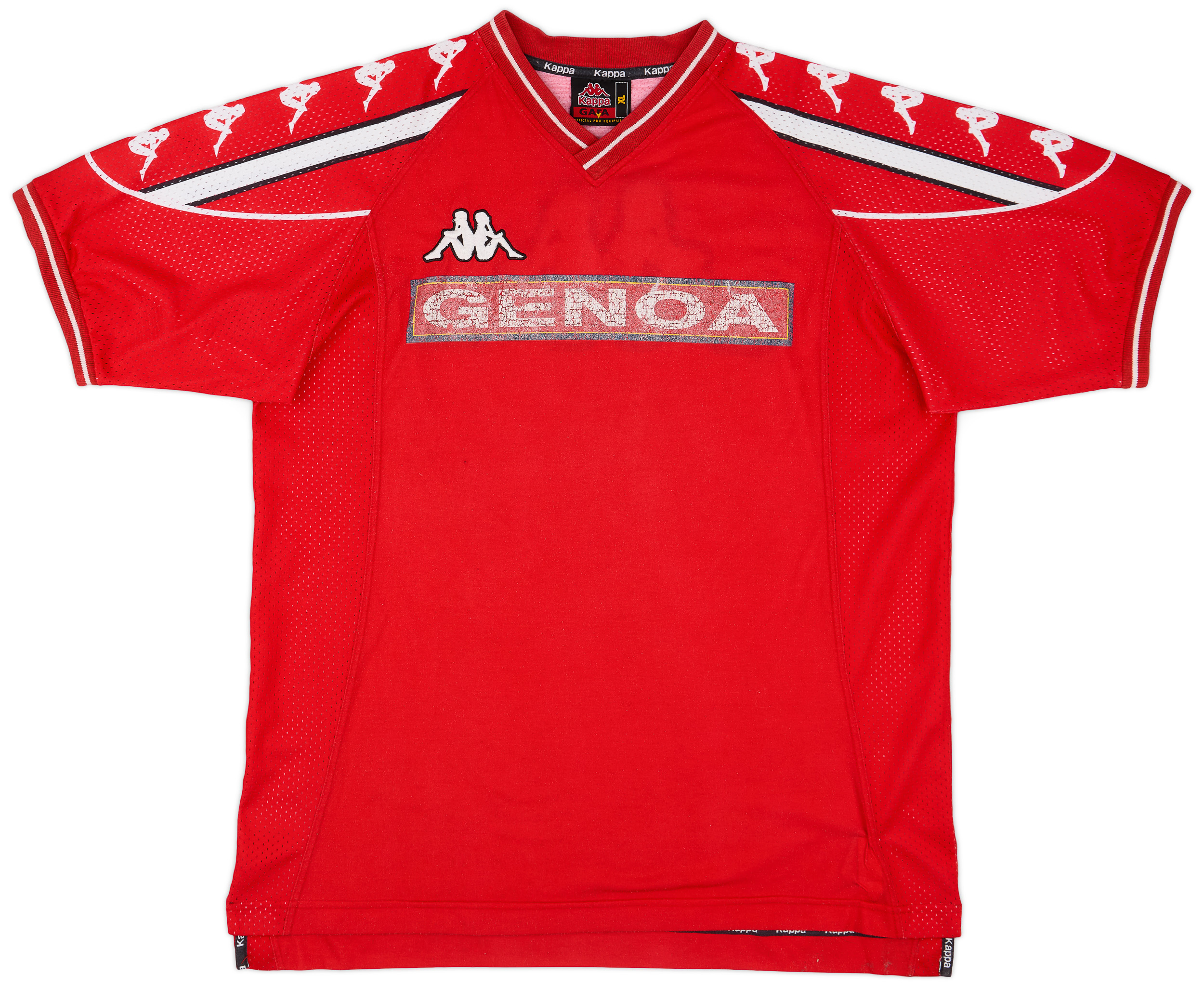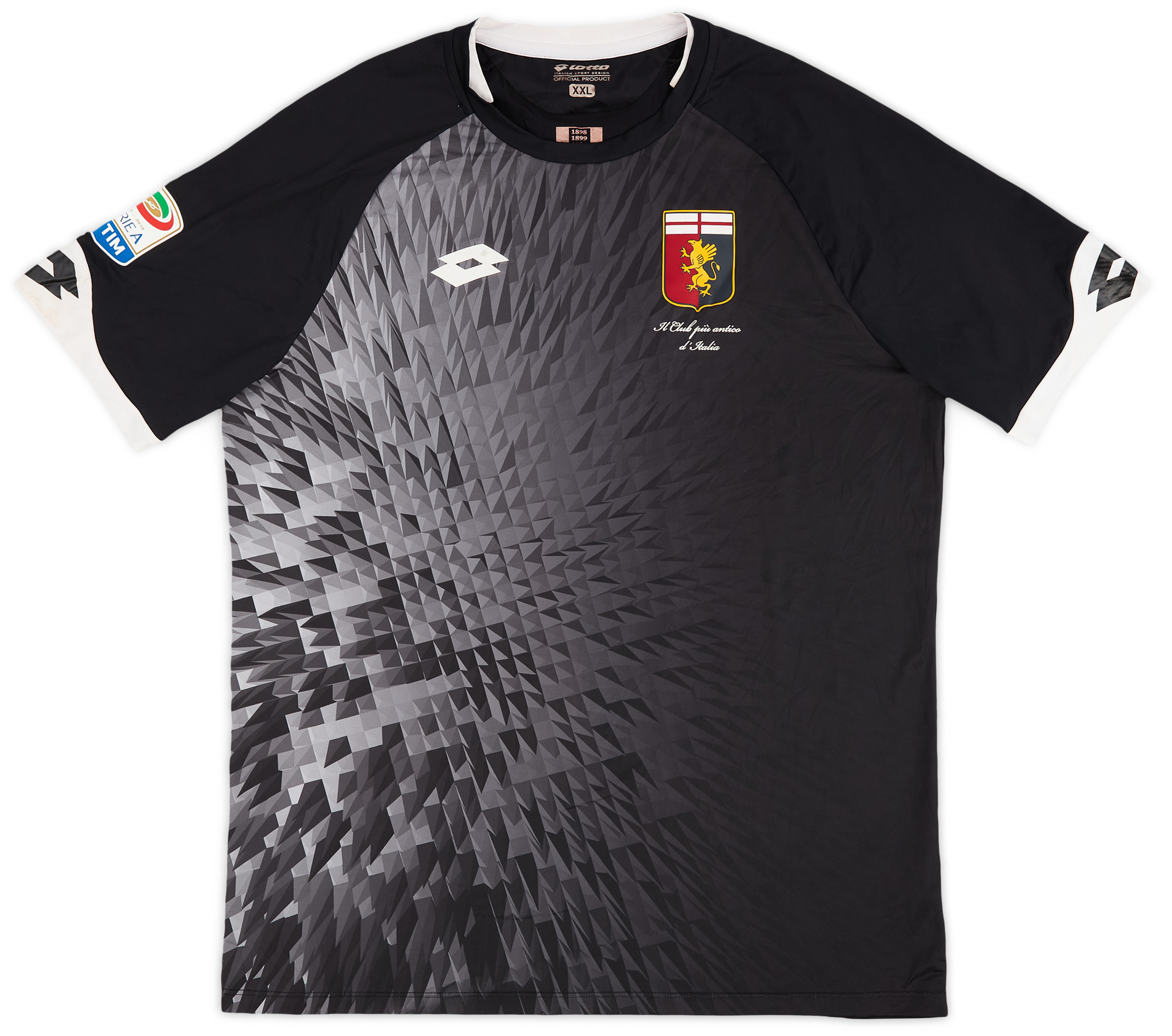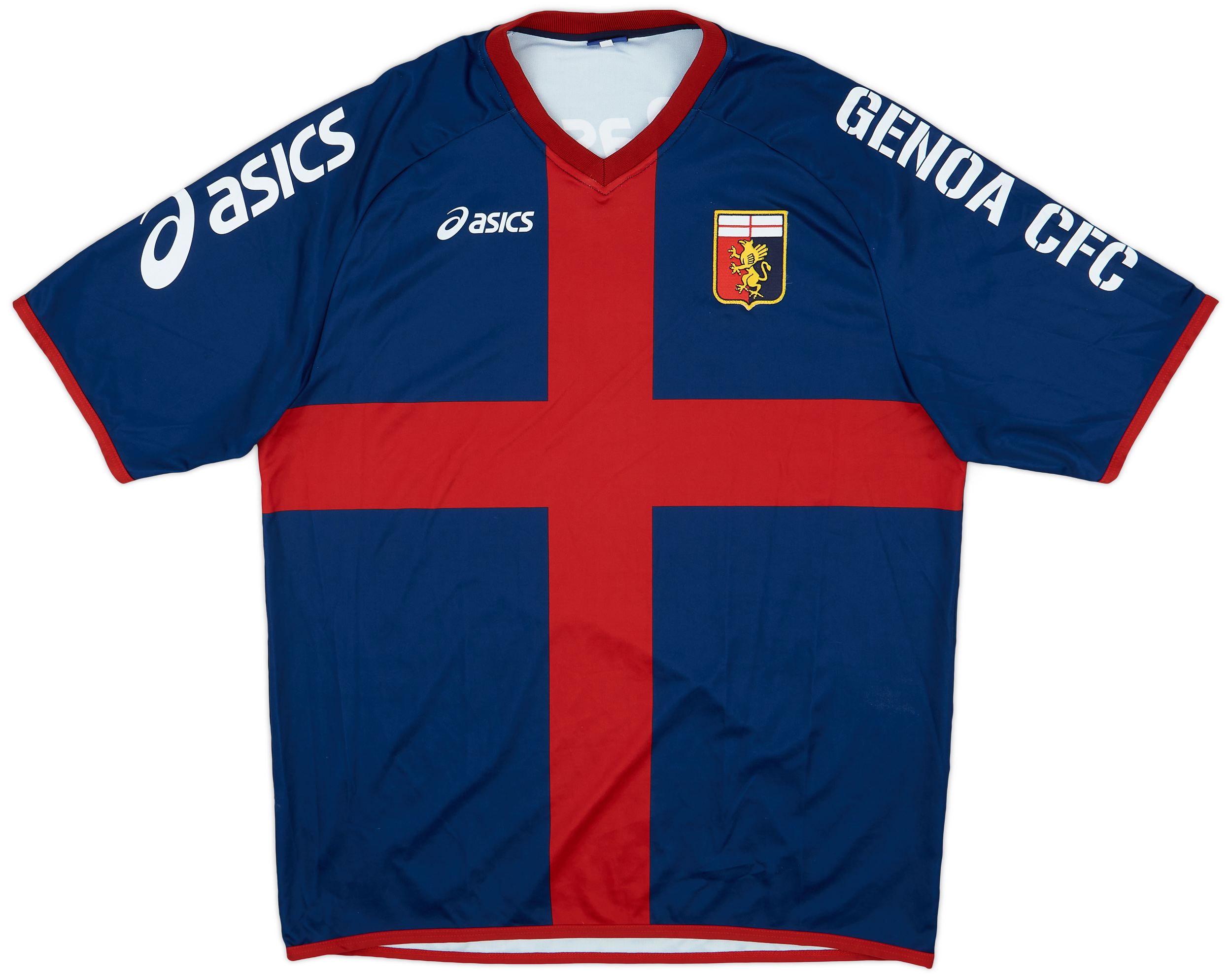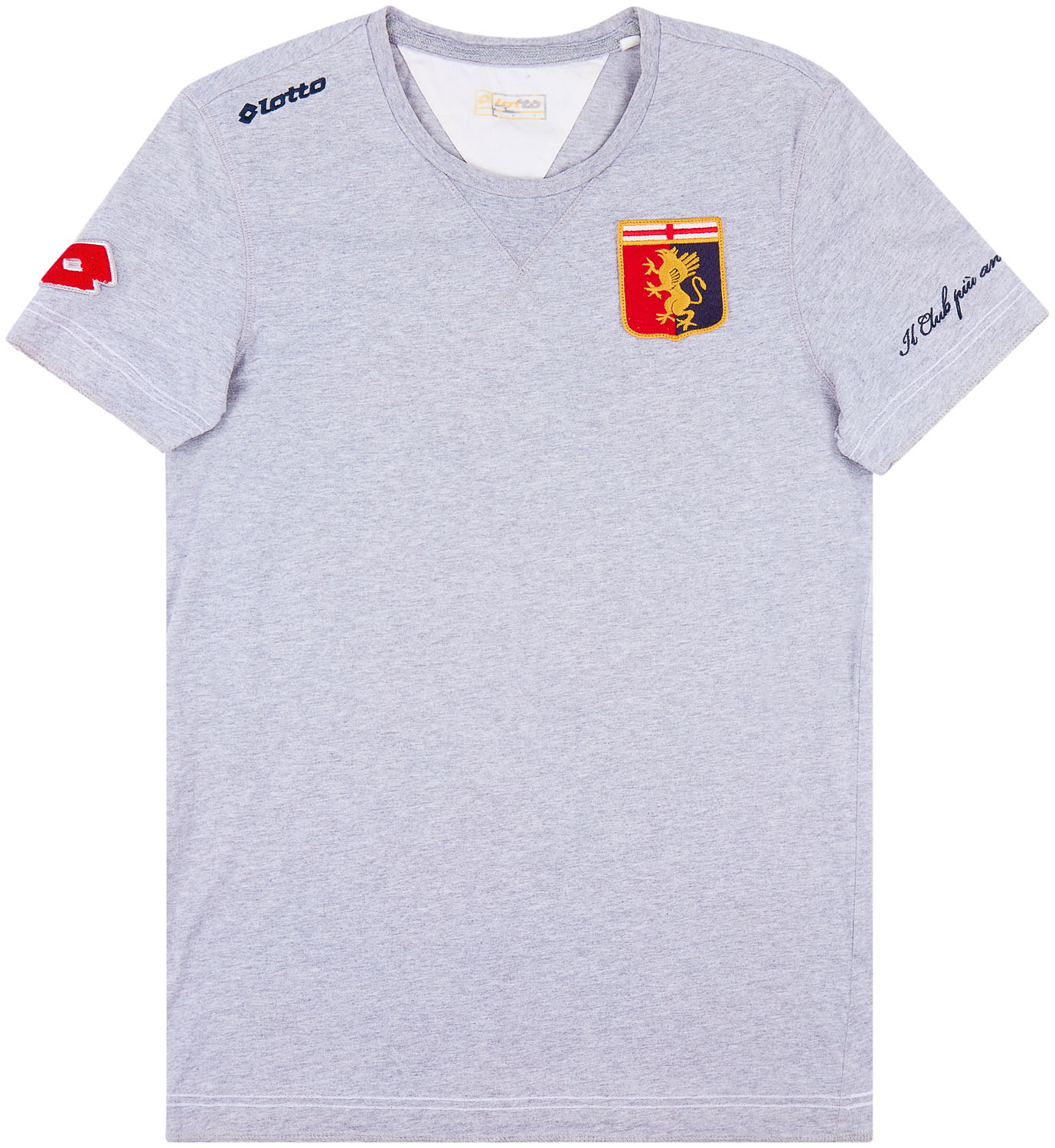Genoa
Introduction Genoa Cricket and Football Club, commonly known as Genoa, holds the prestigious title of Italy’s oldest football club. Established in 1893, it stands as a significant landmark in the country’s rich football heritage. Based in the coastal city of Genoa, the club’s identity is tightly woven into the fabric of local culture, representing not […]
1989-90 Genoa Home L/S Shirt #9 - 8/10 - (L/XL)
296.99£ - ca: €350
1989-90 Genoa Home L/S Shirt - 10/10 - (M)
296.99£ - ca: €350
1992-93 Genoa Away L/S Shirt - 9/10 - (L)
237.99£ - ca: €281
1988-89 Genoa Away L/S Shirt - 6/10 - (XL)
207.99£ - ca: €245
1990-91 Genoa Home L/S Shirt - 9/10 - (XL)
207.99£ - ca: €245
1994-95 Genoa Home Shirt - 8/10 - (XL)
177.99£ - ca: €210
1994-95 Genoa Home Shirt - 8/10 - (S)
177.99£ - ca: €210
1991-92 Genoa Home Shirt - 9/10 - (M)
177.99£ - ca: €210
1994-95 Genoa Home Shirt #11 - 9/10 - (M)
177.99£ - ca: €210
1991-92 Genoa Home Shirt - 8/10 - (XL)
177.99£ - ca: €210
1991-92 Genoa Home Shirt - 9/10 - (XL)
177.99£ - ca: €210
1990-91 Genoa Home Shirt - 9/10 - (XL)
177.99£ - ca: €210
1992-94 Genoa Home L/S Shirt - 8/10 - (XL)
177.99£ - ca: €210
1991-92 Genoa Home Shirt - 8/10 - (XL)
177.99£ - ca: €210
1990-91 Genoa Home L/S Shirt - 7/10 - (L)
177.99£ - ca: €210
1991-92 Genoa Home Shirt - 9/10 - (XL)
177.99£ - ca: €210
1991-92 Genoa Home Shirt - 9/10 - (L)
177.99£ - ca: €210
1994-95 Genoa Home Shirt - 9/10 - (L)
177.99£ - ca: €210
1992-94 Genoa Home Shirt - 9/10 - (L)
148.99£ - ca: €176
1994-95 Genoa Home Shirt - 7/10 - (L)
148.99£ - ca: €176
1995-96 Genoa Home Shirt - 9/10 - (XXL)
148.99£ - ca: €176
2001-02 Genoa Home Shirt - 9/10 - (XL)
118.99£ - ca: €140
1994-95 Genoa Match Issue Away Shirt #5
118.99£ - ca: €140
2000-01 Genoa Kappa Padded Bench Coat - 6/10 - (XL)
118.99£ - ca: €140
1998-99 Genoa Home Shirt - 8/10 - (L)
118.99£ - ca: €140
2015-16 Genoa Match Issue Away Shirt De Maio #4
94.99£ - ca: €112
1991-92 Genoa Home Shirt #10 - 9/10 - (L)
94.99£ - ca: €112
1992-94 Genoa Third Shirt - 6/10 - (L)
94.99£ - ca: €112
2003-04 Genoa Match Issue Home Shirt Cordone #17
94.99£ - ca: €112
1990-91 Genoa Home Shirt - 5/10 - (M)
94.99£ - ca: €112
2003-04 Genoa Match Issue Home Shirt Comandini #70
94.99£ - ca: €112
2009-10 Genoa Home Shirt (XXL)
94.99£ - ca: €112
2016-17 Genoa Away Shirt (XXL)
82.99£ - ca: €98
2011-12 Genoa GK Shirt Jean Claude #1 - 8/10 - (L)
82.99£ - ca: €98
2007-08 Genoa Signed Home Shirt - 9/10 - (L)
70.99£ - ca: €84
1994-95 Genoa Away Shorts - 9/10 - (XL)
70.99£ - ca: €84
2001-02 Genoa Errea Player Issue Training Shirt #41 - 9/10 - (XL)
70.99£ - ca: €84
1996-97 Genoa Errea Training L/S Shirt - 8/10 - (L)
70.99£ - ca: €84
2013-14 Genoa Away L/S Shirt - 8/10 - (XL)
70.99£ - ca: €84
2005-06 Genoa Home Shirt Caccia #10 - 6/10 - (L)
70.99£ - ca: €84
1991-92 Genoa Errea Training Shirt - 6/10 - (L)
70.99£ - ca: €84
1994-95 Genoa Errea Training Shirt - 8/10 - (XXL)
70.99£ - ca: €84
2016-17 Genoa Home Shirt - 9/10 - (S)
58.99£ - ca: €70
1993-94 Genoa Errea Training/Leisure Tee - 8/10 - (L)
58.99£ - ca: €70
2015-16 Genoa Away Shirt - 8/10 - (L)
58.99£ - ca: €70
2014-15 Genoa Home Shirt - 8/10 - (S)
58.99£ - ca: €70
2019-20 Genoa Away Shirt - 9/10 - (S)
58.99£ - ca: €70
2014-15 Genoa Home Shirt - 9/10 - (S)
58.99£ - ca: €70
2009-10 Genoa Home L/S Cup Shirt Palacio #8 - 5/10 - (L)
53.99£ - ca: €64
1999-00 Genoa Kappa Training Shirt - 5/10 - (XL)
53.99£ - ca: €64
2004-05 Genoa "Promozione Serie A" 'Signed' Away Shirt - 7/10 - (XL)
53.99£ - ca: €64
2008-09 Genoa Asics Polo L/S Shirt (XL)
47.99£ - ca: €57
2008-09 Genoa Asics Sweat Top - 6/10 - (S)
47.99£ - ca: €57
1992-93 Genoa Errea Player Issue Sweat Top #20 - 4/10 - (XXL)
47.99£ - ca: €57
1999-00 Genoa Kappa Training Shirt - 4/10 - (L)
41.99£ - ca: €50
2017-18 Genoa GK S/S Shirt - 7/10 - (XXL)
41.99£ - ca: €50
2023-24 Genoa Away Shirt
41.99£ - ca: €50
2008-09 Genoa Asics Training Shirt - 9/10 - (XXL)
35.99£ - ca: €42
2017-18 Genoa Lotto Training Shirt - 9/10 - (XL)
29.99£ - ca: €35
2018-19 Genoa Lotto Padded Gilet/Vest
23.99£ - ca: €28
2013-14 Genoa Lotto Fan Leisure T-Shirt - 7/10 - (S)
23.99£ - ca: €28
2015-16 Genoa Basic Home Shirt - 8/10 - (M)
23.99£ - ca: €28
2022-23 Genoa Castore Training Tee
17.99£ - ca: €21
2022-23 Genoa Castore Hooded Travel Jacket (KIDS)
17.99£ - ca: €21
2022-23 Genoa Castore 1/4 Zip Training Top (KIDS)
14.99£ - ca: €18
2022-23 Genoa Castore 1/4 Zip Training Top
14.99£ - ca: €18
2022-23 Genoa Castore Travel Shorts
11.99£ - ca: €14
2017-18 Genoa Lotto Training Shirt - 5/10 - (M)
11.99£ - ca: €14
2022-23 Genoa Castore Travel Shorts
11.99£ - ca: €14
2022-23 Genoa Castore Travel Jacket (KIDS)
9.99£ - ca: €12
2022-23 Genoa Castore Training Shorts
5.99£ - ca: €7
2022-23 Genoa Castore Travel Shorts (KIDS)
4.99£ - ca: €6
2022-23 Genoa Castore 3/4 Training Pants (KIDS)
4.99£ - ca: €6
Warning: A non-numeric value encountered in /var/www/netskribent.dk/retro-football-shirt.com/wp-content/themes/boot5/single-clubs.php on line 148
Introduction
Genoa Cricket and Football Club, commonly known as Genoa, holds the prestigious title of Italy’s oldest football club. Established in 1893, it stands as a significant landmark in the country’s rich football heritage. Based in the coastal city of Genoa, the club’s identity is tightly woven into the fabric of local culture, representing not just a sports team but a symbol of community pride and tradition. The passionate supporters, known as “Grifoni” (the Griffins), continue to rally behind their team, cultivating a vibrant atmosphere during home games at the Stadio Luigi Ferraris.
Club History
Genoa was founded on September 7, 1893, by a group of English expatriates, including the club’s first president, James Richardson Spensley. Initially formed as a cricket club, it quickly transitioned to include football, reflecting the growing popularity of the sport in Italy. The club’s first-ever match took place in 1894, marking the beginning of its football journey.
As one of the founding members of the Italian Football Federation (FIGC) in 1898, Genoa played a pivotal role in shaping early Italian football. The club achieved its first success in 1898 by winning the inaugural Italian championship. Over the years, Genoa experienced numerous highs and lows, including relegation to lower divisions and subsequent promotions, but its historical significance has remained intact. Notably, during the 1940s and 1960s, the club enjoyed periods of dominance in Italian football.
Achievements
Genoa’s trophy cabinet is filled with an impressive array of titles that underscore its status in Italian football. The club has won the Serie A championship nine times, with their last title victory occurring in the 1923-24 season. Additionally, Genoa has secured the Coppa Italia during the 1936-37 season, contributing to their reputation as a formidable competitor in domestic tournaments.
In the realm of international competitions, Genoa reached the finals of the now-defunct Mitropa Cup in 1992. Although they were unable to capture the title, their participation showcased the club’s capabilities on a European stage. With a history rooted in competition and persistence, Genoa’s achievements serve as a testament to its enduring legacy as a cornerstone of Italian football.
Significant Players and Matches
Throughout its long history, Genoa has been home to numerous legendary players who have left an indelible mark on the club. One of the most notable figures is Giuseppe “Pino” Camilli, who played for Genoa between the 1930s and 1940s and is remembered for his goal-scoring prowess. Additionally, players like Lino Miele and Aldo Maldera contributed significantly to the club’s rich history.
One of the landmark matches in Genoa’s history occurred in 1991 against their rivals, Sampdoria, in the famous Derby della Lanterna. This contentious fixture not only showcases local pride but also represents the intense rivalry that exists within the city of Genoa. The derby is a highlight of the football calendar, drawing significant attention from fans and media alike.
Cultural Impact
The influence of Genoa extends beyond the football pitch, deeply intertwining with the local culture and identity. The club’s supporters are known for their unwavering loyalty, turning out in impressive numbers to fill the stands during home matches. The passion of the Grifoni can be seen in the sea of red and blue waving scarves, as well as the deafening chants that echo throughout the Stadio Luigi Ferraris.
Genoa also plays a significant role in fostering local pride. The club acts as a representative of the city, embodying its resilience and spirit. Events surrounding match days offer a community gathering point, where families and friends come together, further solidifying Genoa’s standing as a cultural touchstone in the region.
Conclusion
In summary, Genoa Cricket and Football Club stands as an iconic institution in the annals of Italian football history. With a rich heritage marked by notable achievements, legendary players, and unwavering support from its fanbase, Genoa captures the essence of what it means to be part of a footballing community. As the club continues to navigate the challenges of modern football, its legacy remains a testament to its founding principles and the passionate spirit that drives its supporters. Genoa is not just a football club; it is a historical entity that encapsulates the heart and soul of Italian football.



